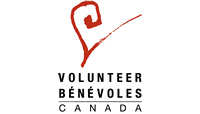Disaster Response
Disaster Response
How to help when disaster strikes
Disasters receive a lot of media coverage, heightening our emotional connection with those affected and creating a calling within many of us to find a way to help.
No two-disaster management or recovery situations are the same. Factors include the amount of forewarning issued to the community, the preparedness of local citizens (e.g. stores of water, food), emergency infrastructure (e.g. hurricane shelters), and the capacity and coordination of local emergency response agencies (e.g. police, fire, shelters, charities/NGOs, government departments). Also, the kind of response required changes as the situation progresses. For example, preparation for a hurricane, when the hurricane touches down, the period of immediate emergency support to persons in danger, support to persons in shelters following a hurricane who have lost homes, water contamination and power structure damage all require different skills and changing leadership amongst emergency response agencies. The well-meaning involvement of agencies or individuals that have not been a part of the coordinated response effort at each of these stages can impede, rather than support, recovery.
When should you go into a disaster to help?
Those wishing to volunteer in an emergency situation must look to the (often evolving) requests of the coordinating agencies for what support they need and when. Usually, those agencies want pre-trained individuals. For example, volunteers wishing to help in Florida immediately after a hurricane are usually required to have shelter volunteer training and a background check, according to Volunteer Florida. When calling for volunteer support in a disaster, the Canadian Red Cross often requires volunteers to have received their Emergency Management Volunteer training. Coordinating agencies often issue urgent requestsfor volunteers trained in emergency response (e.g. fire, police) and medical personnel (e.g. nurse and doctors) to increase local capacity. In sum, unless you have received the training requested by coordinating agencies, don’t go. You might not only be in the way, you may be putting your own safety at risk, adding to the emergency.
How should I help when I’m living in an emergency situation?
The strength of community recovery comes from individuals looking in on each other, helping each other and working together. Not having Red Cross training doesn’t and shouldn’t stop neighbours from sandbagging in floods or taking in neighbours affected by fires. Emergency response units may also ask individuals to join coordinated hands-on efforts. Depending on the situation, they may instead ask you to evacuate. Response and recovery depend in large part on everyone working with the oversight coordinating agencies who have the best view and experience on priorities and safety as a situation progresses. In sum, help neighbours within your skills and capacity when you are in an emergency situation, but listen to the direction of coordinating agencies and other emergency response groups.
Should I send food, clothes or other items to disaster recovery situation?
Again, it depends. Following some disasters, unneeded donated items are left to rot or are destroyed because they are in the way. "It is heartbreaking," says Juanita Rilling, former director of the Center for International Disaster Information in Washington, D.C. "It's heartbreaking for the donor, it's heartbreaking for the relief organizations, and it's heartbreaking for survivors; this is why cash donations are so much more effective. They buy exactly what people need when they need it.” Requests for needed items usually come from local charities but can also be announced by coordinating agencies. Depending on the distance, the shipping expenses to send donated items can often compare to or exceed the value of the items. Joining efforts with other groups, especially those associated with agencies working in the disaster area, can reduce costs. Donating money to local charities, as Rilling suggests, allows them to buy exactly what is needed and often helps in commercial recovery efforts by purchasing from local businesses. If you have family, friends, family or friends of friends, faith or other affiliations in the disaster area, wiring money directly to them is also sometimes a very effective, direct way to help. In sum, look to an announcement from disaster recovery area agencies for what items are required and avoid sending anything else. Consider donating funds directly as a potentially more effective use of resources.
The “3Cs” of how to respond following a disaster
When our hearts are breaking for those in a disaster, helping - truly providing needed help - means putting aside what we think is required and watching for what the experts are asking for. Volunteer Florida’s 3C’s list is a concise summary on how to respond to a disaster situation:
Cash: Financial support to established relief organizations is always the most immediate, useful, and versatile way to give. Financial assistance allows relief organizations to meet urgent needs quickly.
Confirm: Confirm there is a local need before collecting or sending donated items.
Connect: Volunteers are a critical part of a well-coordinated and well-resourced humanitarian response, but potential volunteers should confirm that they are needed before travelling to impacted areas – do not self-deploy.

